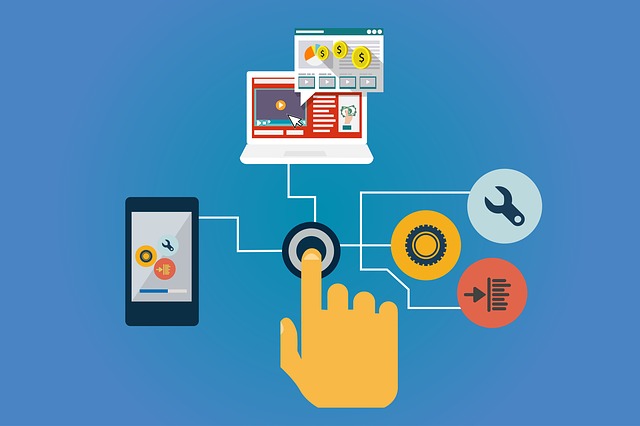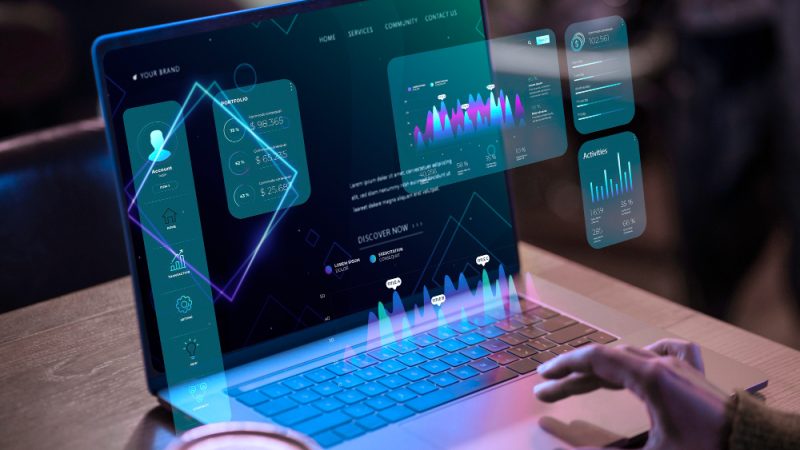7 Trends That Indicate The Successful Implementation Of Technology In B2B Retail

Digitization and Technology is adding the genuinely necessary dexterity to B2B retail
There have been major shifts in the world of B2Bretail. Relentless technological innovation has propelled digital transformation in retail, with B2B at the forefront of this lucrative industry.
Much like the B2C retail, the B2B industry has also seen steady growth. Not only is the B2B market gradually heading for an online presence, but it’s doing so by mirroring some significant strategies straight from its B2C counterpart.
So, let’s enlighten you further on the outcome of the rapid innovations in the sphere of B2B retail through these trends.
-
Advanced omnichannel experience
Consumers are the mainstays in today’s digital marketplace. They have access to all the details and are surrounded by different shopping choices, both online and offline. So, it’s imperative for B2B retail companies to emphasise customer experience like never before.
Attracting and engaging consumers have become a challenging process more than ever as most consumers use different devices and channels every day. So, offering smooth and omnichannel experience is a necessity in today’s B2B retail landscape.
If you haven’t already adopted this technology, it’s time to make the omnichannel experience an integral part of the business strategy.
-
Massive reform in terms of lightning-fast order fulfilment
As more B2B retail companies embrace digitisation, the need for fast and efficient fulfilment processes has become exceedingly urgent. In a post-Amazon era, millennial consumers are driving this demand. They expect B2B retail companies to offer express shipping options on par with those of B2C merchants, with the majority of the B2B consumers expecting same-day delivery.
In case of fast order fulfilments, automation could be the answer, at least for some companies. Automating the warehousing process lowers human errors and time is taken to store and pick the products. All this the B2B order fulfilment process more efficient.
-
The emergence of data analytics
Analytics is possibly the most vital B2B solutions for businesses to increase their market growth while enhancing their consumer experience.
Many B2Bs retail companies are planning to successfully integrate consumer analytics into their business models. This will allow them to concentrate on offering better personalisation at scale by continuously improving every aspect of the marketing dissertation topic for every consumer in real-time.
Providing targeted product recommendations is one such way to keep the B2B retail customers engaged. To make particular recommendations, it’s significant to integrate consumers’ real-time purchase data with their historical purchase data.
-
Expectations around personalised experiences for consumers
As the B2B retail world gears up for more B2C-like experience for the consumers, the significance of personalisation can’t be undermined.
In fact, Amazon has already employed these personalisation features effectively. Amazon Business has followed the footsteps of its B2C counterpart to replicate the success in the B2B market. They made it happen through personalising customer content on an individual level. Listed below are some of the good personalisation features.
- Follow-up emails or personalised newsletters based on consumer behaviour
- Suggestions depending upon historic purchases
- Services based on the specific location of consumers
- Recent products sorted by interest level
- Customised navigation experience, product catalogues, and checkout processes
-
Digital supply chain management
The pandemic has affected global supply chains by exposing most B2B retail companies’ loopholes. Particularly the ones whose supply chains rely on suppliers from other countries to fulfil their needs for finished products.
This is the primary reason why many B2B retail companies are reducing their dependence on specific countries and are increasing the capacity of their existing centres.
B2B leaders across different industries must emphasise on converging their foundational supply chain abilities with advanced digital strategies in order to defend against global supply chain abnormalities and remain competitive.

-
Emphasis on consumer loyalty
It’s no secret that drawing in new customers is always more expensive than retaining an existing one. Loyalty programmes are usually all the rage in B2C retail. In B2B, customer loyalty takes on an even more crucial role. Smaller consumer pool, longer sales cycle, higher acquisition costs, and much higher sales value are all contributing factors.
The B2B retail industry relies on the retention and repeat purchases, where established, steadily-growing companies generate their revenues from existing consumers. In future, companies who convert new consumers into steady, recurrent revenues will prevent stagnation and emerge as the frontrunner in this sphere.
-
Implementation of mobile-first technology
Many industry experts are confident that in the near future, the vast majority of new B2B retail projects will have full support for mobile devices. These businesses will have a responsive web design (RWD). But the industry will witness the implementation of increasingly popular Progressive Web App (PWA) technology.
PWA technology lets users of B2B retail platforms have a native-app-like experience. In practice, this indicates a number of features including, sending push notifications about the status of orders or partial use of the application (i.e. orders preview) which is also available offline.
PWA technology can also minimise the company’s expenditure by focusing only on the development of the web application rather than a native app.
Parting thoughts,
Undoubtedly, B2B retail is observing evolution in terms of its processes and operations. Adopting these approaches, B2B retail companies will be in an advantageous position to find the unseen ROI of each consumer you attract. These innovations will also help build a seamless business process, paving the path to profit.
Author bio: Thomas Meyers is a senior marketing professional for a distinguished organisation in Australia. Meyers has pursued his MBA in media marketing from Federation University. He holds immense knowledge of marketing automation and online research paper writing. He’s also a part of MyAssignmenthelp.com as an academic expert and offers assistance to students.






